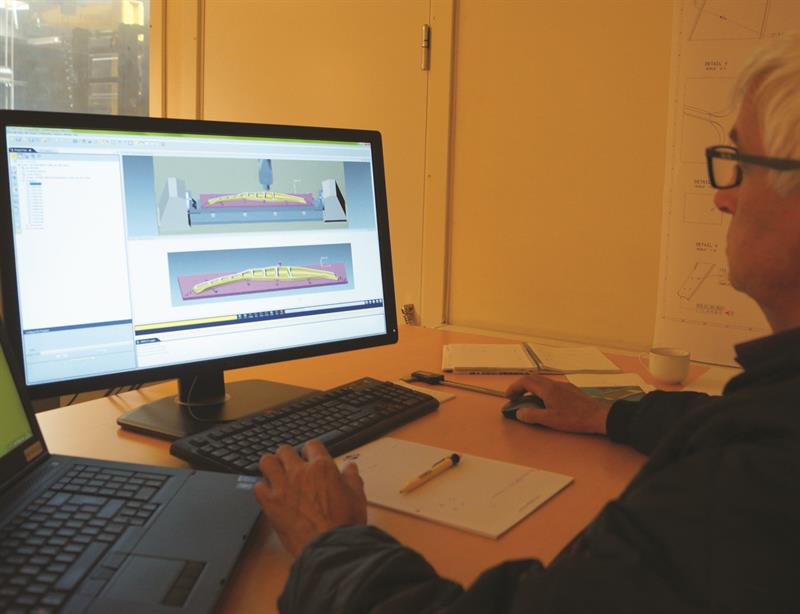From understated 210,000 ft² manufacturing facilities in rural Denmark, Multicut supports customers in wind power, renewable energy and other sectors with its 250 staff operating, among others, 65 Yamazaki Mazak (01905 755 755) CNC machine tools equipped with robot loading configured in a manufacturing cell.
Each pallet in a cell is equipped with the workholding required to produce a part, with four different parts per pallet, if they can be fitted to the face of a tombstone fixture. Once the pallet is set up, it will never be stripped down. Likewise, the cutting tools and toolholders associated with the component will remain in the system. Each toolholder is microchipped with all of the required data: who set it up, how many parts it has run, who programmed the parts, and so on. No tool is ever shared between parts.
Once the cell reaches capacity, another one is purchased, with the machine tools’ capacities specified to meet the majority of component sizes forecast from a target industry sector. Business development director Frank Duhring states: “I do not look at a customer’s volume anymore; I look if they need 115 hours or more of machining time to fill the pallet. We are not concerned if the customer wants just two, three or five parts per month, or if they want 25,000. Many industries have stable products and can be viewed as high volume, if you consider their requirements over 10 or 20 years. For example, an earthmoving dumper truck’s design has not changed much in the past 30 years, so its components can be considered high volume.”
Once a component has been set up and run, it can be ready to machine in a minute, following customer re-order, since all information and physical hardware is stored in the system for life. As each cell has a finite capacity, the company is constantly investing in machine tools. Currently, it can run more than 500 different components at any one time, with sizes and complexity ranging from small turned spacers to vast precision machined plates for the wind energy sector.
Says Duhring: “If we start to break down the pallets in the system we lose what we are about, because the foundation of the company is to only do work once. Eliminating moving work around also helps profit and productivity; moving work just costs time and money, it does not add value. We have gained so much this way, taking away the risk. Otherwise, every time a customer comes back you have to remake the tool package and fixtures, and humans make mistakes; that’s reality. We mitigate that with our manufacturing philosophy and Vericut software.”

Vericut is used to protect machine tool and automation investments at Multicut
All of the Mazak machines and physical details, such as the tooling, fixturing and robot system, are replicated in that software from CGTech (01273 773538) supplied and supported by Danish reseller IPES. Vericut simulates the whole manufacturing cycle, from the robot loading of the raw material to the programmed cutting toolpath, checking for collisions or even near misses between physical structures, such as the pallet and workholding, machine tool elements or gouges in the raw material.
The business development manager concludes: “It is much more cost effective to validate a part using advanced software like Vericut rather than on a machine tool. The software costs a few thousand euros, while the machine can easily represent €1 million. An error detected in Vericut might cause a few red faces. However, any damage that an error causes to the machine tool has a far wider impact on the business.”
This article was published in the February 2017 energy sector supplement of Machinery magazine.










